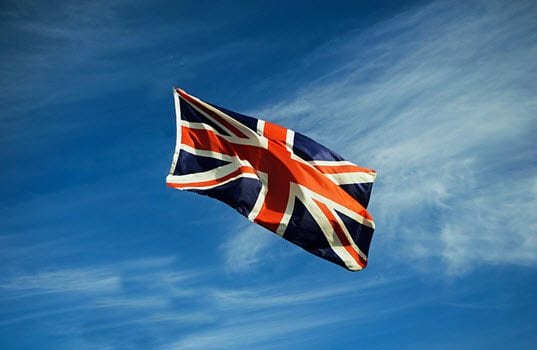By Keith Reid
The June 23 vote by Britain to leave the EU caused a bit of a ruckus with significant losses in the financial markets and an approximate 5% drop in the price of oil. None of this was particularly surprising in retrospect, given the general thought leader perceptions before the vote that a withdrawal was unlikely. It should be noted that a week later, both the financial markets in the price of oil are rebounding.
Longer term, a variety of analysts have, as usual, provided a variety of projections. These range from a calamity relative to Britain leaving the EU, to a golden age for Britain. However, many of these projections seem to have been aimed at influencing the vote. You can similarly find far more moderate projections that would indicate a short-term period of disruption, followed by a return to relative normal. Frankly, this is one of those cases where it’s going to take time to tell, and the ramifications for the EU likely outweigh the ramifications for Britain.
The BREXIT leave vote, and the underlying conflict of nationalism/populism versus globalism, raises at least some questions over the stability of the more aggressive climate change policies of the EU, just as a Donald Trump presidency would do so in the United States. THIS article in Scientific American spells out some of the basic ramifications: If it “brexits,” the United Kingdom would likely chart its own course within the U.N. climate process, seeing its influence shrink overall while pro-coal Poland gained clout within the group of nations in opposition to more climate-ambitious Germany and France, analysts said.
“So in terms of shifting the balance of power in Europe toward less ambition on climate, it would be quite a big deal for European power in the world,” said Nick Mabey, CEO at the U.K.-based Third Generation Environmentalism.
And also according to the article, there is a potential ripple down effect on climate policy in general: “It would be a massive distraction for the next couple of years, not only in the U.K. but more broadly,” said Andrew Steer, president and CEO of the World Resources Institute, who is British. “It will encourage a sort of inward-lookingness at a time when we need an outward-lookingness. Ideas need to be shared across country borders, technologies need to be shared, ambitions need to be shared as well.
“So we need a race to the top, not a sort of closing down,” he said.
The inward-lookingness Steer noted should not be underestimated; after all it’s founded on tens of thousands of years of human nature.
Tea and Toast
There are numerous factors that make up the nationalism/populism sentiment behind the BREXIT. Most predominant recently has been the immigration crisis. But even that is just a symptom (a major one to be sure) of what is seen by UK populists as a lack of national sovereignty under the EU, and a death by 1000 cuts from faceless, unaccountable bureaucrats in Brussels. One of those cuts, and one that was to be put off until after the vote (and suppressed beforehand), was an assault on the English tradition of tea and toast.
As THIS May 11, 2016, article in the UK media outlet The Telegraph noted:
The European Commission plans to unveil long-delayed ‘ecodesign’ restrictions on small household appliances in the autumn. They are expected to ban the most energy-inefficient devices from sale in order to cut carbon emissions.
The plans have been ready for many months, but were shelved for fear of undermining the referendum campaign if they were perceived as an assault on the British staples of tea and toast.
A sales ban on high-powered vacuum cleaners and inefficient electric ovens in 2014 sparked a public outcry in Britain.
The article further noted that David Coburn, a Ukip MEP, previously blamed the EU after finding it took his toaster four attempts to brown the bread sufficiently to spread marmalade. Which itself questions the energy efficiency rational if the appliance has to be used four times to get the same and result. Apparently, next on the list for new eco design rules are Internet routers, hand-dryers, mobile phones and—the energy scourge of patio jet-washers. Yest, patio jet-washers use a lot of energy because energy is necessary to in generating a high pressure water stream to actually perform the difficult cleaning required. But, just how many households in Europe own own, and how often are they used? To a regulatory hammer everything looks like a nail.
As I’ve touched on in previous pieces, up until now this aggressive Western climate change remediation push has generally been absorbed in government debt, and in relatively minor disruptions—though messing with tea and toast is not considered minor to the British. For the bureaucrats and national leaders involved, poor performing appliances are likely more of an issue for the household kitchen and cleaning staff than something that would be a personal impact. But as aggressive climate policy ramps up, so will the impact on the average person.
If the Paris COP21 accord that was recently signed is actually followed, and given the entirely voluntary nature of the accord that is an open question, Western economies will increasingly start to feel significant impacts from the carbon reduction efforts. For example, with COP21 the Obama Administration supported its established target to reduce emissions 26%-28% (compared to 2005 levels) by 2025. The long-term goal is 80% by 2050. The goal is generally near zero emissions by that point.
Before long it won’t just be tea kettles and toasters and light bulbs and vacuum cleaners and dishwashers and clothes dryers getting the pinch for those in the developed West.
As UKs Daily Mail covered in THIS article following COP21: Bob Ward, who is policy director at the Grantham Research Institute of Climate Change, said that to meet Britain’s commitments the days of cooking with gas were numbered.
He said: ‘The only possible use of fossil fuels that will continue is if they are used to generate electricity, but this will only happen if the carbon dioxide they create is captured and stored.
‘Gas cookers will be phased out, probably as soon as possible. I suspect manufacturers will simply stop making them.’
He added that in years to come some form of carbon tax putting up the cost of gas is inevitable – which will make electric cookers much cheaper than their gas rivals.
CCC chief executive Matthew Bell said: ‘For something like heating, by 2050 gas will be playing a much more limited role and a range of other technologies will have taken its place, meaning low-carbon sources of warmth—heat pumps and so on.’
Philosophical Ramifications
It’s broadly regarded that the BREXIT, and closer to home the Trump candidacy, represent a populist repudiation of the globalization movement that has been underway since the George H.W. Bush administration following the collapse of Soviet Union and the end of the Cold War. The epicenter of Western globalization is centered in the EU and fully supported though the UN, and both bodies have been in an extraordinarily aggressive, Western-focused push to address climate change. In the United States aggressive climate change policy that could not get passed through legislative bodies has been implemented by fiat through government agencies with the bureaucrats located in Washington instead of Brussels. Long term, the likelihood that aggressive climate change policies will continue should also come under some doubt if the current movement has legs.
(Continued on Next Page, Click Below)









